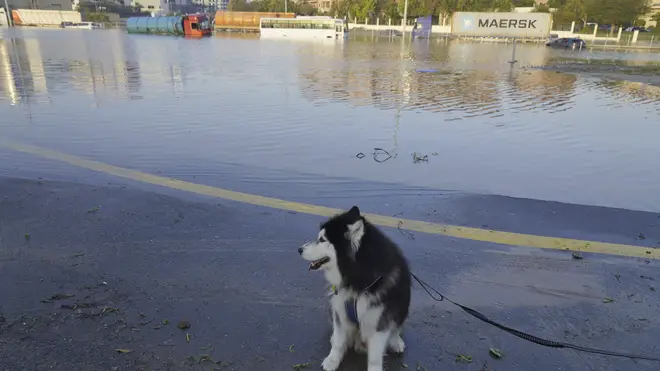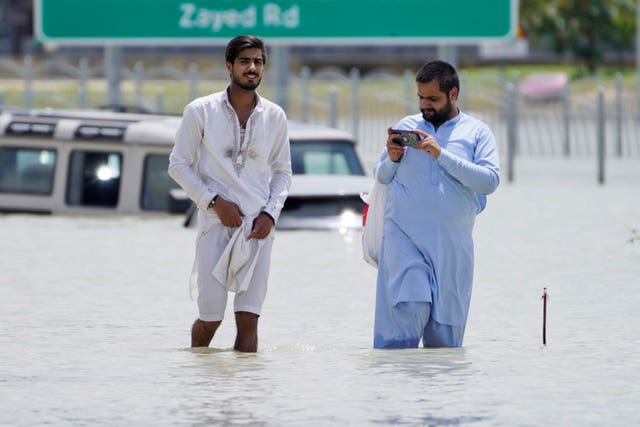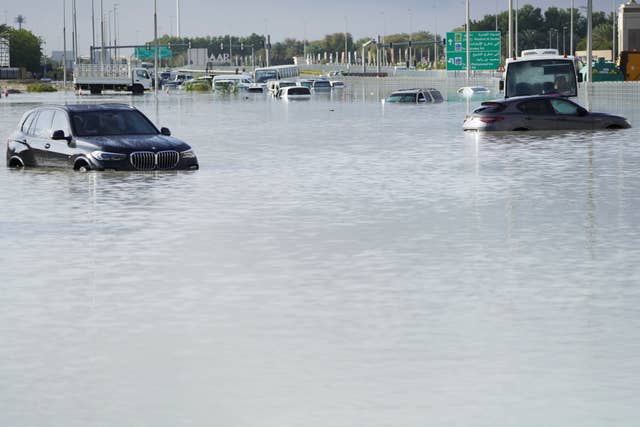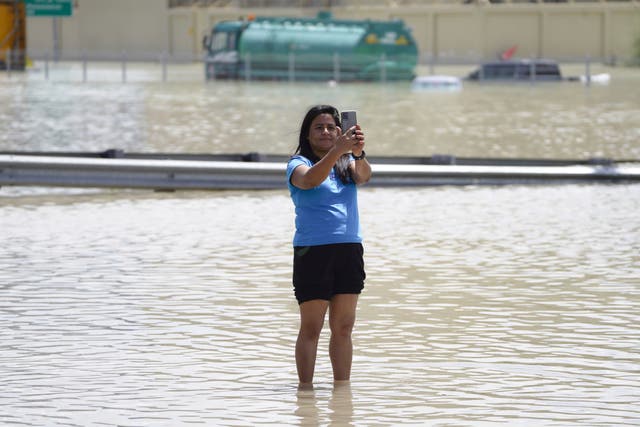
Clive Bull 1am - 4am
18 April 2024, 08:24

Dubai International Airport is working to restore normal operations even as floodwater still covers portions of major highways and roads.
The United Arab Emirates is struggling to recover from the heaviest recorded rainfall to ever hit the desert nation, as its main airport worked to restore normal operations even as floodwater still covered portions of major highways and roads.
Dubai International Airport, the world’s busiest for international travel, allowed global carriers to fly into Terminal 1 at the airfield again on Thursday morning.
“Flights continue to be delayed and disrupted, so we urge you to only come to Terminal 1 if you have a confirmed booking,” the airport said on the social media platform X.

The long-haul carrier Emirates, whose operations had been struggling since the storm on Tuesday, had stopped travellers flying out of the UAE from checking into their flights as they tried to move out connecting passengers.
Pilots and flight crews had been struggling to reach the airport given the water on roadways.
But on Thursday, they lifted that order to allow customers into the airport.
Others who arrived at the airport described hours-long waits to get their baggage, with some just giving up to head home or check into a hotel.
The UAE, a hereditarily ruled, autocratic nation on the Arabian Peninsula, typically sees little rainfall in its arid desert climate.
However, a massive storm forecasters had been warning about for days blew through the country’s seven sheikhdoms.

By the end of Tuesday, more than 142 millimetres (5.59 inches) of rainfall had soaked Dubai over 24 hours.
An average year sees 94.7 millimetres (3.73 inches) of rain at Dubai International Airport.
Other areas of the country saw even more precipitation.
The UAE’s drainage systems quickly became overwhelmed, flooding out neighbourhoods, business districts and even portions of the 12-lane Sheikh Zayed Road highway running through Dubai.
The state-run WAM news agency called the rain “a historic weather event” that surpassed “anything documented since the start of data collection in 1949″.
In a message to the nation on Wednesday, Emirati leader Sheikh Mohammed bin Zayed Al Nahyan, the ruler of Abu Dhabi, said authorities would “quickly work on studying the condition of infrastructure throughout the UAE and to limit the damage caused”.

On Thursday, people waded through oil-slicked floodwater to reach abandoned cars, checking to see if their engines still ran.
Schools remain closed until next week.
Authorities have offered no overall damage or injury information from the floods, which killed at least one person.
Jeff Masters, a meteorologist for Yale Climate Connections, said the flooding in Dubai was caused by an unusually strong low pressure system that drove many rounds of heavy thunderstorms.
Scientists also say climate change is responsible for more intense and more frequent extreme storms, droughts, floods and wildfires around the world.
Dubai hosted the United Nations’ COP28 climate talks just last year.